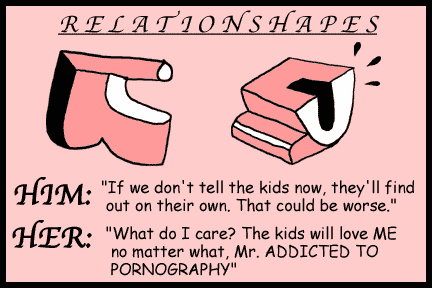David Rees
Interview by Ed Robertson

David Rees is an online and print cartoonist whose best known works include Get Your War On, and My New Fighting Technique Is Unstoppable. Get Your War On drew acclaim shortly after 9/11, combining the bravado of the Bush administration, the occasional language of a street thug, and an office setting. Before skepticism of the war on terror was cool, David Rees drew attention to the lack of dialogue in the U.S. concerning the bombing campagin in Aghanistan, and the eventual invasion of Iraq.
In addition to Get Your War On and MNFTIU, Rees is the creator of Adventures of Confessions of Saint Augustine Bear, Relationshapes, and My New Filing Technique is Unstoppable.
Edward Robertson: There is a quote attributed to you that says "Anyone who takes the time to draw a comic by hand is a maniac." Did you ever think of being a maniac prior to getting started in the strips?
David Rees: I drew cartoons by hand for years, starting in middle school and continuing through college. I didn't like how long it took, and since I'm left-handed I always got ink all over my hand and smudged the drawings, which drove me bonkers. So I farmed out all the art-making to Microsoft PowerPoint clip art (personally rendered by Bill Gates, I heard) and, later, to Dover Publications clip art. That meant I had more time free for writing the dialogue and watching TV and eating chips and cheese, which is my real passion.
Edward Robertson: During those years when you were still hand drawing, did you think comics were something you were going to "do", or was it just a hobby until you were free from the ink?
David Rees: Cartooning was always a hobby. If I ever hoped to make a living being creative, it was to be a professional indie-rock musician. That particular dream died a thousand deaths.
Edward Robertson: You're still involved in a band though, right?
David Rees: No, my band broke up years ago. I haven't been performing music. In fact, I have a gig on Tuesday (1/30) that will be my first music gig in three years.
Edward Robertson: Are you getting going on a whole new band, or is this just a one-time deal?
David Rees: I'm performing solo acoustic singer/songwriter stuff...very short songs (like ninety seconds each). I'm opening for famous internet singer Jonathan Coulton.
Edward Robertson: Is your stuff somewhat similar lyrics-wise? I've heard a few of his songs, and they were fairly amusing...
David Rees: My songs are less amusing and more abstract. Also, shorter.
Edward Robertson: Is working in two different mediums a challenge? In terms of finding time, material, focus...?
David Rees: Actually, I work in six different mediums:
1. Cartoons (this takes approximately two minutes per week.)
2. Music (forty-five minutes per day.)
3. Television watching (three hours per day.)
4. Ice-cube sculpture, ie micro-sculptures of D&D characters in ice cubes (twenty minutes per day.)
5. Mud-slingin' painting with dirt brushes and leaves-and-branches frames (every other Saturday in the woods.)
6. Performative levitation (two hours per day.)
Edward Robertson: Sounds rewarding—but only three hours for TV? Do the cartoons often write themselves, then? What's your process like?
David Rees: The cartoons do not write themselves. However, I don't write them either. I have a computer program I developed that generates each week's cartoon automatically. It scans New York Times headlines (a most liberal newspaper), then inputs keywords into a profanity-filled "dialogue template." The text is then dumped into a graphical interface with three pieces of randomly selected clip art (randomly selected from a library of five pieces of clip art). The whole thing is then compressed to squeeze out any remaining humor or subtlety, and then emailed to my editors. That gives me more free time to watch TV and cash my fat checks...which I then spend on upgrading my cartoon-generating supercomputer.
Edward Robertson: How did Get Your War On get started?
David Rees: After 9/11 I wanted to read jokes about the War on Terrorism, but I couldn't find many I liked. So I made my own and sent the comics to my friends. And they sent 'em to their friends, etc. etc.
Edward Robertson: There's also a sense of angry confusion in those jokes, like maybe we were moving too fast to war, which wasn't exactly a commonly-expressed sentiment a month after 9/11. Did the response to this come as a surprise?

David Rees: I was surprised anyone other than my friends found the comics interesting or meaningful. But it turns out a lot of people shared the same skepticism and mixed emotions in the fall of 2001. I was surprised by the attention the comic received, and I think others were surprised the comic existed.
Edward Robertson: How mixed were your emotions about the national response? Did making GYWO clarify them any?
David Rees: I was bothered by how little skepticism there was about launching a "war on terror," and how little discussion was given to the possible humanitarian consequences of a bombing campaign in Afghanistan. I also thought some of Bush's "good versus evil" talk was hyperbolic— but, again, there wasn't much skepticism about it. I don't know if GYWO clarified my emotions, but it felt good to express them in such a concise way—and then, to find out that other people shared my concerns.
Edward Robertson: The particular rhetoric of the president and his staff seems to be one of GYWO's focal points. What role do you think language plays in the war on terror?
David Rees: Language is really important. It is the only way we can figure out who's evil— if Bush says someone is evil, then we know! Also, words on banners are REALLY important!
Edward Robertson: How long do you see the comic going?
David Rees: I'll stop making GYWO when Bush leaves office.
Edward Robertson: How did you get involved with Rolling Stone? Webcomics haven't had a ton of success in print.
David Rees: Rolling Stone picked GYWO as their "HOT COMIC" for 2002. They were about to undergo a big redesign and editorial shake-up, and they asked if I'd be interested in running GYWO in the magazine. I said: Yes, if Lenny Kravitz would give me a private fashion consultation. And the rest is HISTORY!!! I HAVE AN AWESOME COLLECTION OF BELT BUCKLES NOW.
Edward Robertson: Do you follow other webcomics?
David Rees: Oh shit, there are other webcomics? I don't really look at comics online. In fact 99% of my online time is spent hitting "refresh" on talkingpointsmemo.com. I still think the best web comic of all time was Leisuretown, even though it was a bit too nihilistic for my taste.

Edward Robertson: Too nihilistic?
David Rees: Yes, it was really, really dark. It made me a little uncomfortable, even as I marveled at its technical excellence.
Edward Robertson: How suggestive are the shapes in RELATIONSHAPES supposed to be?
David Rees: At first I thought it would be good to base the dialogue on the physical properties of the shapes...but I quickly abandoned that idea because it would require ten seconds more work per comic. Although, now that you bring it up, I wonder if maybe I SHOULD return to that idea—for instance, there was a scene in which one shape had a sort of staircase appendage, and that shape invited the other shape to climb up the stairs ( I.E. CLIMB UP HIS SHAPE-BODY) if she thought it would be comforting. That was pretty deep, I must say. In fact, if I may continue to say, the fact that RELATIONSHAPES has achieved exactly 0% popularity is perplexing to me. I think it is the most original comic I ever made. After all, "IT'S RELATIONSHIPS FROM A NEW POINT OF VIEW... THE POINTS OF VIEW OF MOTHERFUCKIN' GEOMETRIC SHAPES!!!" (Relationshapes motto.)
Edward Robertson: It's a little trickier than your other comics.
David Rees: Yeah, it's trickier because it's like ten thousand times better. PLEASE HELP SPREAD THE WORD ABOUT RELATIONSHAPES!!! For instance, you could draw a big parallelogram and then ask your friends, "What do you think this guy's inner emotional life is like?" When their heads explode and then their exploded eyes start weeping all over the room, calmly double-click on a RELATIONSHAPES comic and show them the true pathos of geometric shapes.
Edward Robertson: Do you think inner lives should stay inner?
David Rees: It depends on who you're talking about. For us regular people, yes—inner lives should stay inner. But for celebrities and really attractive people, HELL NO—those inner lives should get as outer as possible.
You can learn more about David Rees at mnftiu.cc
Interview conducted by email, February of 2007
Copyright © 2007 Adventures Underground
More Interviews
